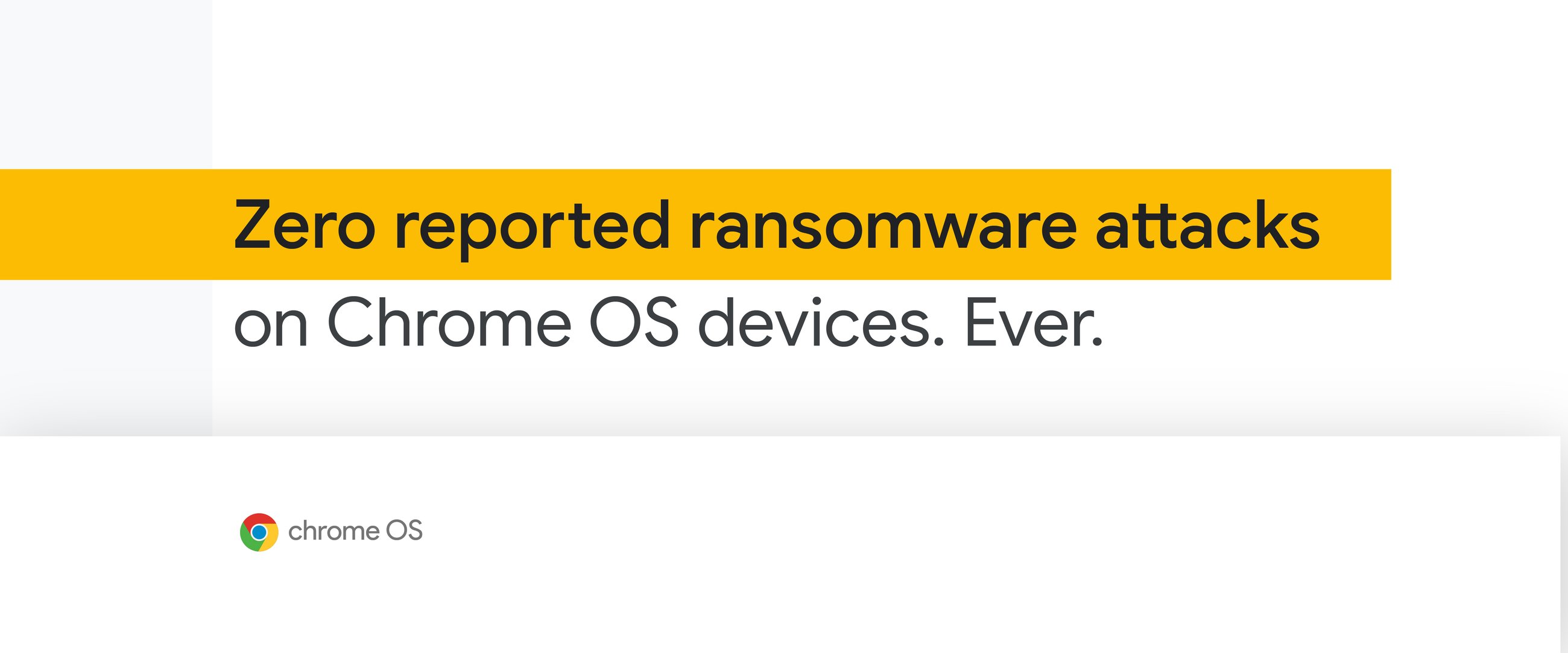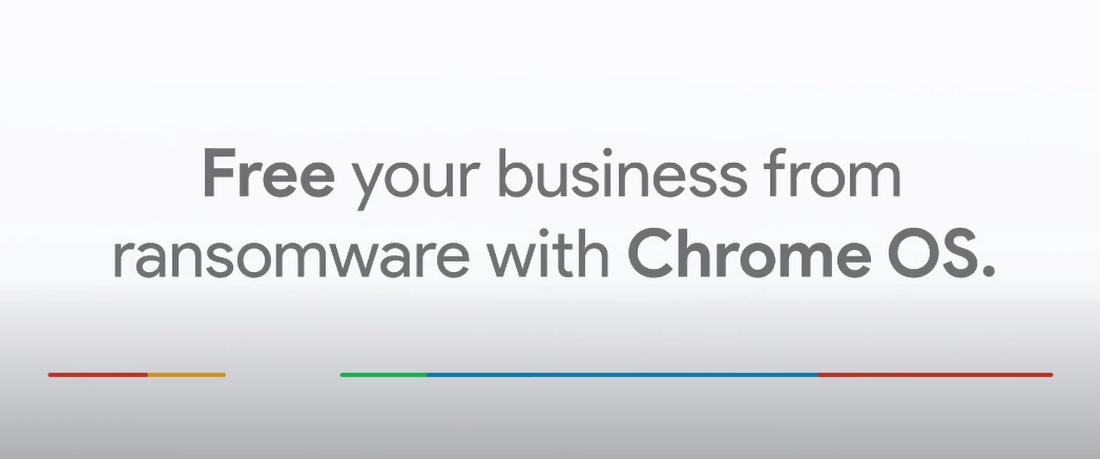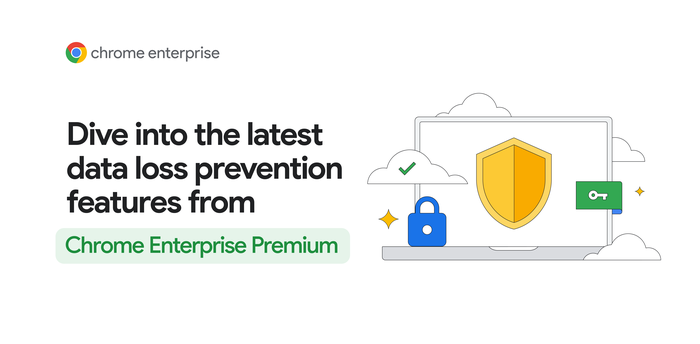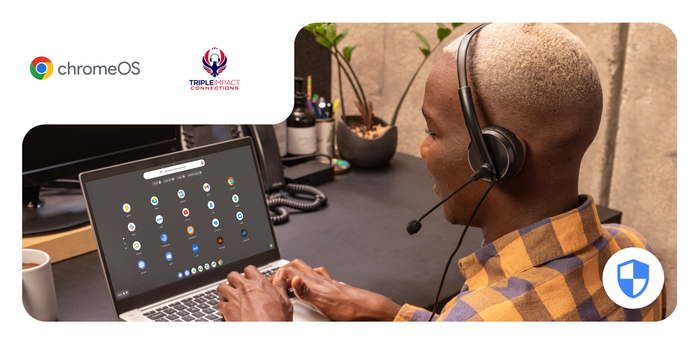Free your business from ransomware with Chrome OS

Thomas Riedl
Senior Director, Product Management
Chrome Enterprise Upgrade free trial
Sign up for a free 30-day trial of the Chrome Enterprise Upgrade and enroll up to 50 Chrome OS devices.
Learn moreWe’ve ushered in the era of hybrid working, and the flexibility it allows has proven essential to both businesses and employees. However, a distributed workforce creates technology challenges that make it easier for cyber crime to thrive. Ransomware attacks skyrocketed 150% in 2020 (Harvard Business Review, Group-IB) with the global shift to remote working, and just since the start of 2021, we’ve seen ransomware attacks on multiple industries including oil, food, and transportation.
Ransomware encrypts your data, making it inaccessible to you and your employees, and the financial implications can be devastating. Many organizations are forced to either pay ransom to cyber criminals to decrypt their data or remediate it through a specialist, which costs an average of $761,106 per attack (Sophos). Globally, the cost of ransomware attacks is expected to exceed $20 billion in 2021 (Cybersecurity Ventures).
Chrome OS is a cloud-first platform that provides protection against ransomware by default. In fact, there have been no reported ransomware attacks ever on any business, education, or consumer Chrome OS device.

Chrome OS has built-in and proactive security to protect your business from ransomware including:
Data and files are automatically backed up to the cloud and recoverable: Because Chrome OS is a cloud-first platform, there’s a very low amount of data on the device that is susceptible to ransomware. All of your user data is backed up to the cloud and your files are backed up in cloud-storage services like Google Drive. In the case that ransomware bypasses Chrome OS security measures, your user data and files can easily be restored almost instantly.
Executables are blocked: Ransomware often hides in executable files that corrupt your data. These executable files cannot run on Chrome OS, which blocks any malicious apps from running. Chrome OS only runs apps from the Google Play store. Google Play Protect scans apps for malware before you download them.
Read-only, tamper-proof OS: System files are kept in a separate partition to ensure the OS cannot be modified by apps or extensions and is inaccessible by ransomware.
Google Safe Browsing: A proactive measure that warns users before attempting to navigate to dangerous sites or before downloading dangerous files.
Automatic updates: Chrome OS updates regularly and automatically in the background providing continuous protection from threats.
Verified boot: If an attack does prevail, verified boot confirms the OS has not been tampered with, and if it has, it reverts to a previous version of the OS.
For financial services companies like Ocwen, a provider of residential and commercial mortgage loan services, protection from ransomware is critical. Head of Global IT Infrastructure for Ocwen, Rishi Gupta states, “We chose Chrome OS because it allowed us to ensure we met our internal information security and compliance requirements. With Chrome OS, our files are saved in the cloud, so we know that we are protecting Ocwen from attacks.”
The smartest approach to ransomware defense is one that has built-in, proactive protection that helps prevent accidental employee negligence. Explore our Chrome OS devices, or start a free Chrome Enterprise Upgrade trial.



